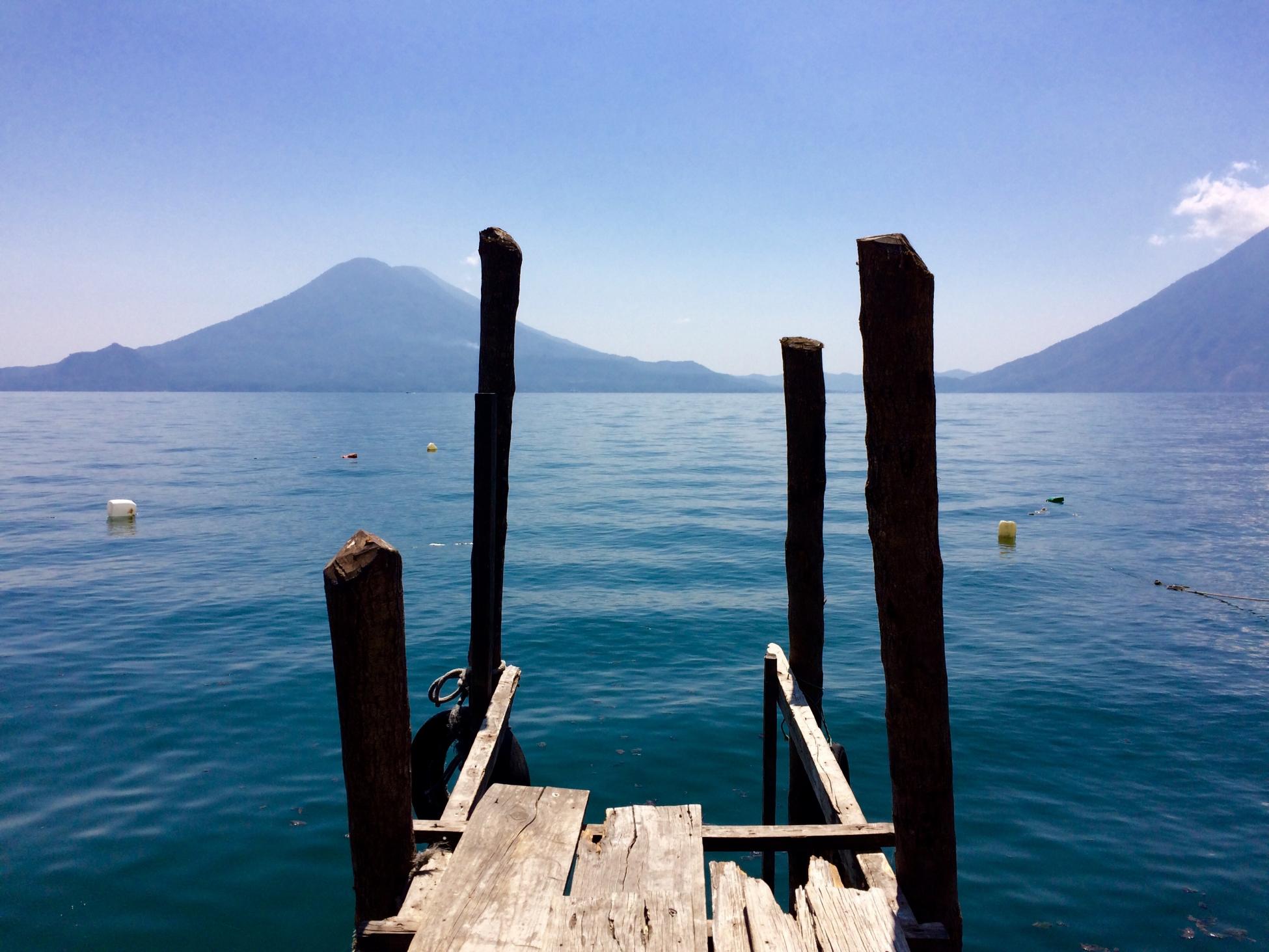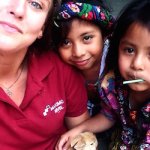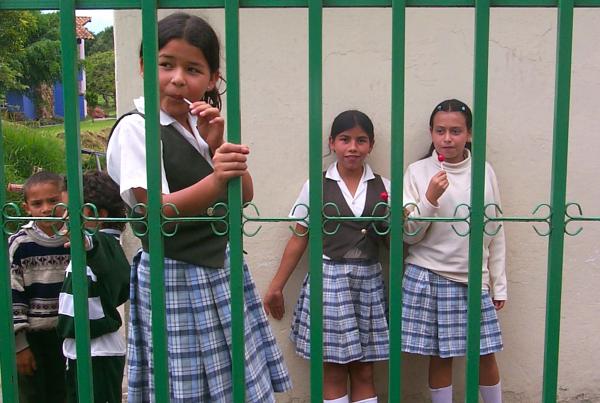It was never my intention to get stuck in Guatemala. The plan was to be gone for six months, head home, find a “real job” and get my life in order.
So when I was faced with making the decision of whether or not to take a year and half long position in Antigua, I spent a week with the idea of staying in Guatemala twisting around my head. I started to feel like I was standing in the centre of a kaleidoscope. My plan of being away from home for six months slowly evaporated. Guatemala was transformed from a stopover, into a place to settle and call home. The walls of my initial plan fell away and the comforts of home were pushed further into the future.
I decided to view Guatemala not as a place to pass time, but as a place to do something constructive with my time.
Since arriving in Guatemala, I had become hypnotized by a place where walls could crumble, chicken buses could crash, volcanoes could (and frequently do) erupt. Everything could change without warning, but the uncertainty of it all was appealing enough to keep me intrigued and staring at the spinning shapes and colours. Plans may or may not be followed through with; people may or may not show up on time; friendships may be temporary.
For me, the timeframe of the position was daunting. But as I weighed my options, I realized that everything I wanted from a job was being presented to me here in Guatemala—maybe this wasn't so far away from original plan to get my life in order; maybe my “real job” had come to me. When I was presented with the possibility of exchanging a temporary situation for something more solid, the desire for the permanent overtook my fear of committing.
My “real job” is working as a field manager for various volunteer projects in the villages surrounding Antigua. A few weeks into the position, the definition of "time" took on a whole new meaning for me. More time is needed here to accomplish smaller things.
One of my projects is working with an after-school care program for kids ages five to 18 in a village called San Antonio Aguas Calientes, about a 30-minute bus ride outside of Antigua. Family-run, the program has been in operation for nine years, and has been so successful that last year they decided to expand. This required tearing down their home in order to build a bigger one, which would double in function as a location for the after-school program. The new facility would be triple the size, allowing for three times the amount of children to have a safe and welcoming place for them to get help with homework.
After sacrificing their home, the family that runs the program have been living on the construction site for over a year while continuing to run the program. While progress is surely and steadily being made, it was not until recently that the roof was finished, 15 months after the beginning of construction and just in time for the rainy season.
It made me hyperaware of how differently we manage time in the Western culture. For us, efficiency means getting things done quickly; the quicker we get things done, the more we can accomplish in a day; the more we can accomplish in a day the more money we can make. Here in Guatemala, they simply aim to get things finished at all, and keep smiling when it takes twice as long as anticipated. Once a traveller here, and now an immigrant to this country, I have begun to embrace this outlook.
I stumbled into a career because I decided to view Guatemala not as a place to pass time, but as a place to do something constructive with my time. I doubt I will ever be able to accurately explain the feeling I get when greeted by smiling Guatemalan children—who after knowing me for all of five minutes treat me like an older sister they've known their entire lives; this feeling is enough affirmation that I made the right decision.
After a month of working with these projects I had an epiphany: the balance between transience and permanence lies in making the effort to leave a lasting impression somewhere. I realize now that the timeframe that initially intimidated me is barely enough to make things happen in a place where the march to progress is one that is slow but certain. Strangely, I found comfort in that alone.
The word kaleidoscope comes from the Greek words for beauty, form and shape, and to look or examine. My experience so far has been affect by all of these three things; the beauty that drew me in and how I began to re-examine the form of the country itself.
Discovering a place or a person that you didn't know existed causes your mental walls to shift slightly—it allows a little more light in that you weren't aware of before. While the initial feeling that I was living inside a kaleidoscope was unsettling, I have no doubts that this is exactly why I was meant to come to Guatemala.
Add this article to your reading list




